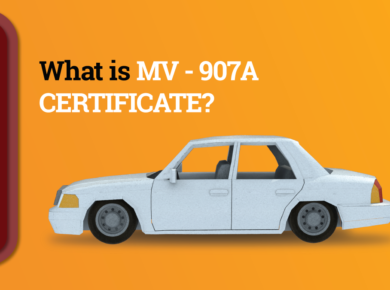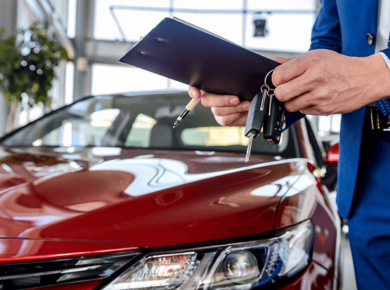A non-repairable car can be an enticing purchase for car enthusiasts and auto businesses. However, it is important to remember that vehicle title law is often complex and has many considerations, especially as the legal situation can differ from state to state. Thankfully, we’ve prepared this guide for you to untangle the legal concerns so you can confidently grab your next non-repairable car deal.
Understanding Vehicle Titles and Their Importance
When trying to digest the legal considerations of non-repairable cars, you may ask yourself, what is a vehicle title? A vehicle title is a document issued by the Department of Motor Vehicles (DMV) certifying a vehicle’s legal owner. This document is crucial in showing car ownership and details its use’s various conditions or restrictions, e.g., salvage or non-repairable designs.
Different types of titles include clean, salvage, rebuilt, and non-repairable. Non-repairable titles (also known as junk titles) are vehicles considered beyond repair and unsuitable for use on the road. These cars cannot, therefore, be registered or driven on public roads.
Title Laws for Non-Repairable Cars: State-Specific Nuances
Title laws for non-repairable cars can often vary from state to state. Let’s dive into them:
- Non-Repairable Car Laws in California
The California local DMV has strict regulations for non-repairable types of cars. Under non-repairable car laws in California, these vehicles are not permitted to be registered or sold to consumers for use on public roads and are thus often used for scrap or parts.
- Alabama Car Title Laws
Alabama Title laws state that a non-repairable vehicle will receive a certificate of destruction, which forbids any attempt to rebuild or register the car. According to Alabama car title law, buyers should be wary when buying a salvage or non-repairable vehicle in the state, as while scrap or parts can be used, the car itself is not permitted to be rebuilt.
- Colorado Non-Repairable Vehicle Laws
Like in Alabama, Colorado’s non-repairable vehicle laws state that cars designated non-repairable cannot be rebuilt and can only be used for scrap or parts.
Buying Non-Repairable Cars: Legal Aspects to Consider
So, based on what we’ve discussed, you might well ask: can you register a non-repairable car? Unfortunately, the simple answer is no. While they may not be registered, rebuilt, and driven, non-repairable vehicles can be bought for parts when rebuilding other vehicles or scrap.
Here are a few considerations you should bear in mind when doing so:
- Title Transfer for Non-Repairable Vehicles
When carrying out a title issue transfer for a non-repairable vehicle, you will need specific documentation, i.e., the vehicle title document and a bill of sale. Therefore, you should ensure the seller provides all the necessary documents to confirm your vehicle history and legal status.
- State-Specific Requirements
Some states have specific requirements for non-repairable vehicles. For example, a non-repairable title in Texas means the car cannot be rebuilt, and the owner of the vehicle must follow guidelines for title transfers. To stay compliant, learn how to transfer a non-repairable title in Illinois, for example.
- Vehicle Identification Number (VIN) Verification
Verify the vehicle identification number (VIN) to check the car’s title status. Services like ClearVin can help you check your VIN history.
Common Questions About Salvage and Non-Repairable Cars
- Can You Legally Drive a Salvage Title Car?
In contrast with non-rebuildable title cars, yes. However, they must be inspected and formally classified as rebuilt before they are permitted to be on the road.
- Is It Legal To Sell a Salvage Title Car?
While selling a salvage title car is perfectly legal, the buyer must inform the previous owner of the title status – a car title document is helpful for this purpose.
- Non-Repairable Title Meaning?
A non-repairable title means that a vehicle has been declared a total loss and is thus unfit to drive and unsuitable to be rebuilt.
Resources and Helpful Links
Thankfully, there are plenty of resources you can consult when trying to dissect the complicated legal requirements of salvage cars and non-repairable title vehicles. Websites like SalvageBid provide valuable insights into state-specific car title laws and a convenient platform to explore non-repairable cars for sale.
Title Laws Across Popular States
Understanding local laws is crucial for buyers in states like Georgia, Florida, Arkansas, and Arizona. For example:
- In Georgia, car title laws require specific title identifications for salvage and non-repairable vehicles.
- Florida Car Title Laws mandate proper documentation and title fees when ownership of non-repairable cars is transferred.
- Arkansas Car Title Laws and Oklahoma Car Title Laws are similar, requiring transparent disclosure of a vehicle’s title status.
Final Thoughts
We hope this guide has shown you that correctly understanding vehicle title restrictions and regulations is paramount. Staying current on state-specific regulations, e.g., Arizona car title laws, will mean you can be confident of your compliance and won’t ask yourself, “How do titles work for cars?” or “Are salvage title cars street legal?”.
For those looking to buy a car of this type, platforms like SalvageBid’s Non-Repairable Vehicle Listings provide access to non-repairable cars for parts or projects, making the process easy and trustworthy.








